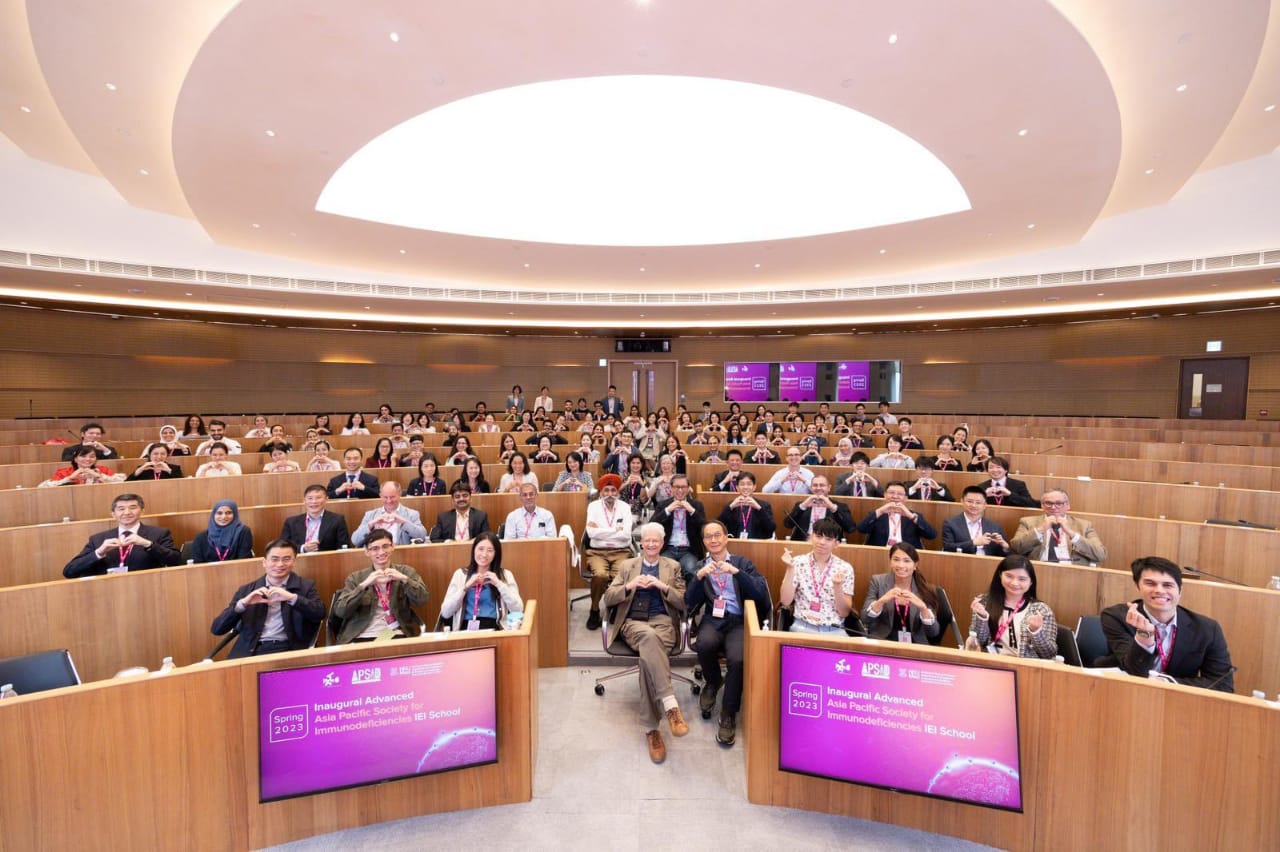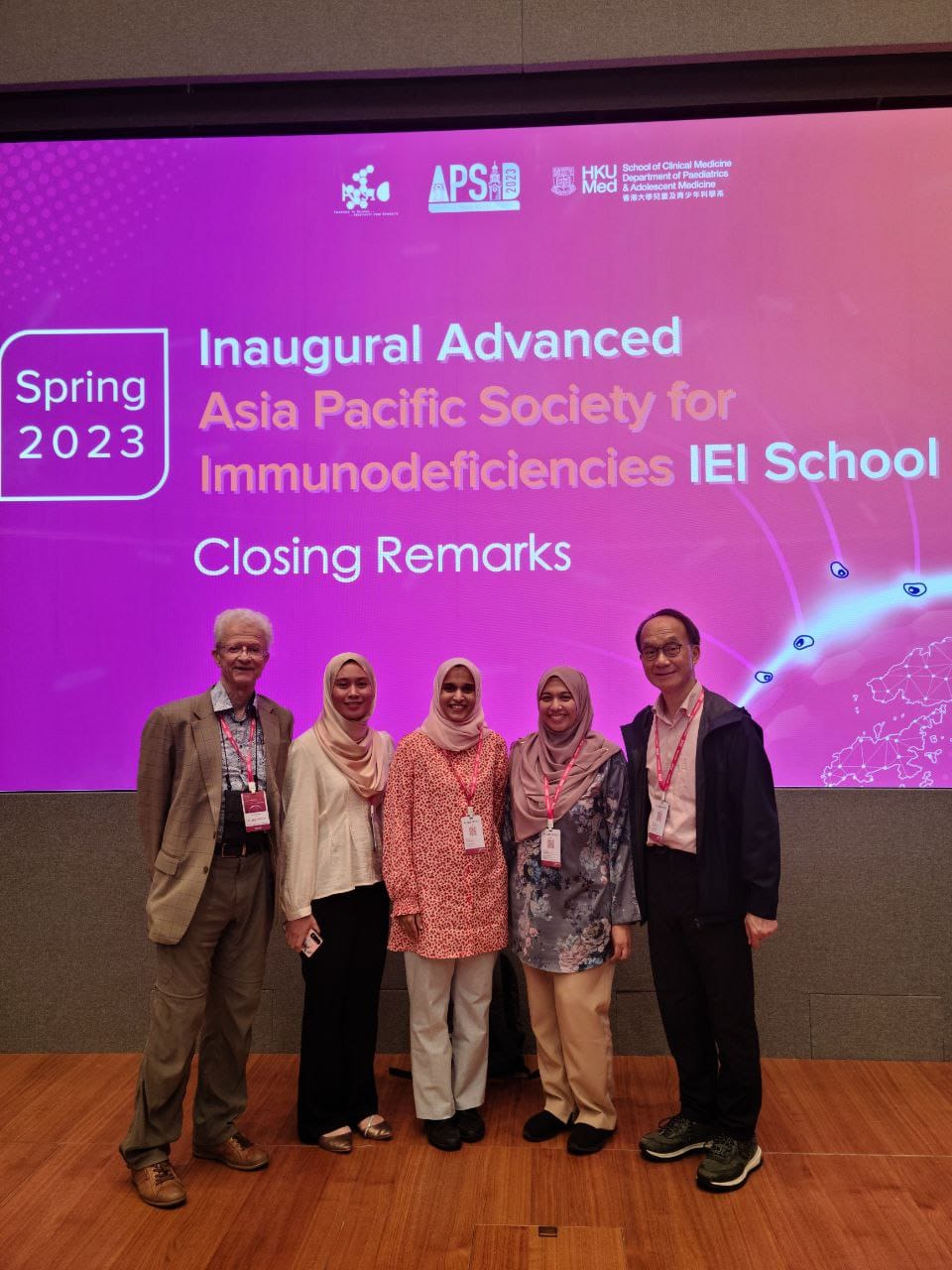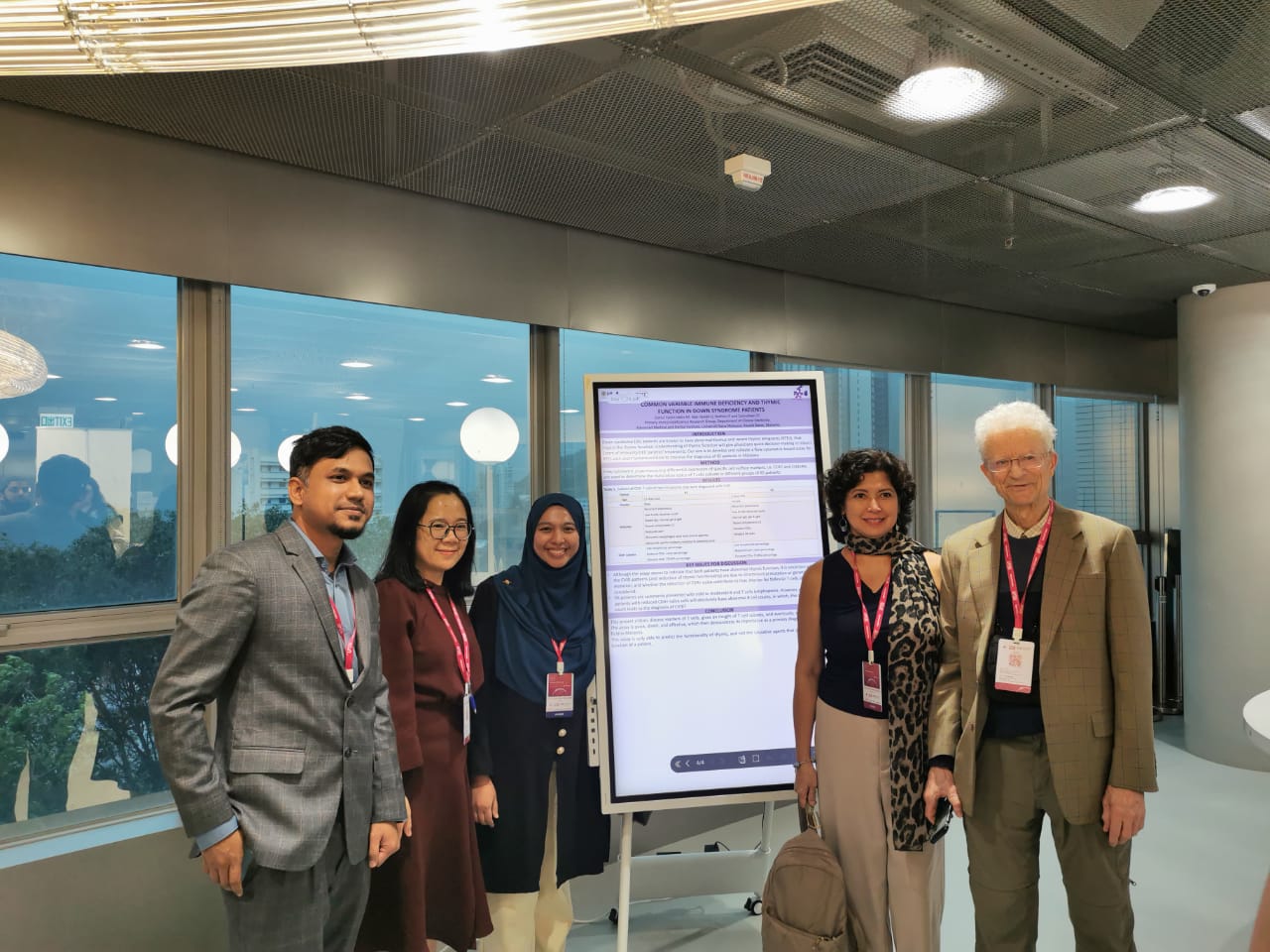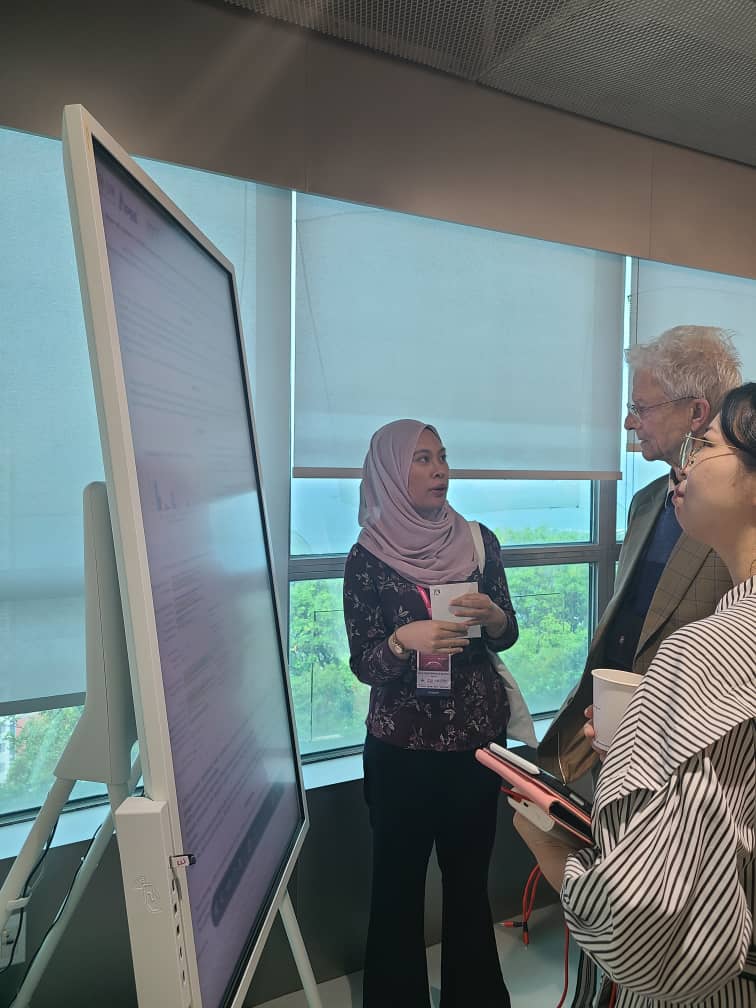HONG KONG UNIVERSITY, April 22 2023 -
By Anis Fatini Shamsul Bahrain, Noor Faralina Zainul Fadziruddin and Dr. Zarina Thasneem Zainudeen
Primary Immunodeficiency Diseases Research Group
Department of Clinical Medicine, Advanced Medical and Dental Institute, Universiti Sains Malaysia
Primary Immunodeficiency Diseases (PID), also known as Inborn Errors of Immunity (IEI), is an umbrella term that represents genetic diseases due to defective immune system. Patients suffering from PID have increased susceptibility to a wide spectrum of infections, allergy, immune dysregulations and autoinflammation. These conditions can be fatal if not treated appropriately.
The Asian Pacific Society for Immunodeficiencies (APSID) IEI School was held at the Hong Kong University School of Clinical Medicine (HKU Med) from 22 until 23 April 2023. Members of the PID research group, Dr. Zarina Thasneem Zainudeen, and two MSc Immunology students, Ms. Anis Fatini Shamsul Bahrain and Ms. Noor Faralina Zainul Fadziruddin were selected as Malaysian representatives to join the conference. This is the first APSID conference held physically since the COVID-19 pandemic. The APSID conference aims to encourage participants to share their clinical expertise, update on latest IEI research, and train new generation of IEI clinician-scientists.
Dr. Zarina is a faculty member of APSID while both of her students, Ms. Anis Fatini and Ms. Noor Faralina are junior members of APSID. Participants were encouraged to submit their most difficult clinical cases and research updates as abstracts to promote discussions and learning experiences for junior members. Selected abstracts were chosen for poster or oral presentation. Furthermore, participants received full funding from APSID to cover hotel accommodation for three days and two nights as well as return trip flight tickets.
Ms. Noor Faralina Zainul Fadziruddin with her poster alongside APSID IEI
School delegates (left) and Dr. Fatima Santos-Ocampo and Prof. Hans
Ochs (right).
The APSID conference was spread out across two days consisting of a Clinical and Advanced Day. Workshops and lectures conducted on Clinical Day mostly revolved around the topics of atopy, autoinflammation, infections and immunological diagnostics which are all crucial in diagnostic strategies of PID patients. Meanwhile, the recurrent themes of discussion in the second day were on the latest research on PID management. This included novel gene discovery, newborn screening, gene therapy and hemotopoietic stem cell therapy. During the conference, speakers also highlighted the importance of a PID registry to contribute to diagnostic and demographic research.
AMDI delegates presented posters that were assessed by prominent figures in the field such as Prof Yu Lung Lau, Prof Hans Ochs and Dr Fatima Santos-Ocampo. Dr. Zarina Thasneem presented two posters entitled 'Impact of Primary Immunodeficiency Diseases on the Life Experiences of Patients in Malaysia from the Caregiver's Perspective: A qualitative study' and 'Chronic Granulomatous Disease: A Retrospective Analysis of Clinical and Functional Aspects from Two Centres in Malaysia.
Meanwhile, Ms. Noor Faralina presented a poster entitled 'Common Variable Immune Deficiency and Thymic Function in Down Syndrome Patients' while Ms. Anis Fatini presented one entitled 'Hyper IgE Syndrome, DOCK8 Immunodeficiency Syndrome and Various Clinical Phenotypes: A single-centre cohort study'. Prior to the two-day conference, APSID organised a welcome dinner at the monumental Helena May building. The dinner concluded with a beautiful piano recital by a 7 year old PID patient.
Ms. Anis Fatini Shamsul Bahrain presenting her poster to Prof. Hans Ochs.
Overall, the APSID conference brought together PID clinicians and scientists from across Asia, South America and North America to share clinical expertise and research progress in a post-pandemic period which encapsulated inspiring work in advocating for patient care in regions with low PID awareness as well as diagnostic and research activities for PID.
SDG 4 - Ensure inclusive and equitable quality education and promote lifelong learning opportunities for all





